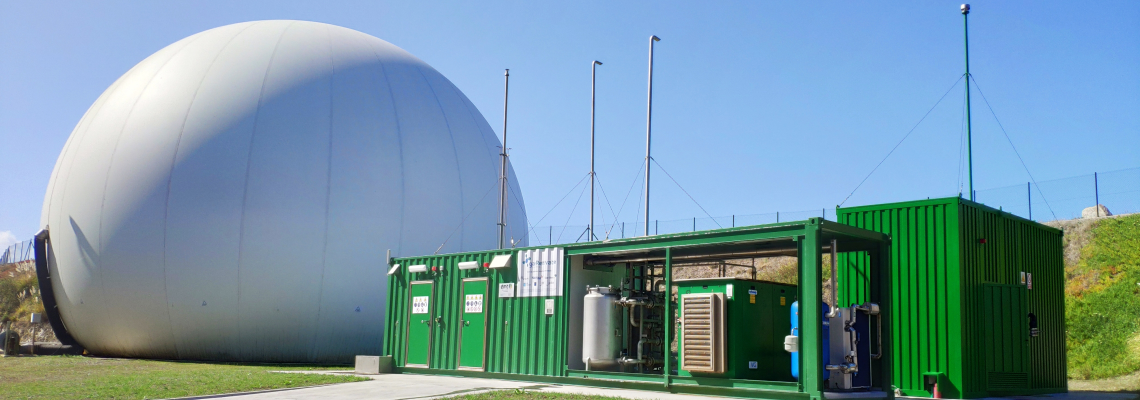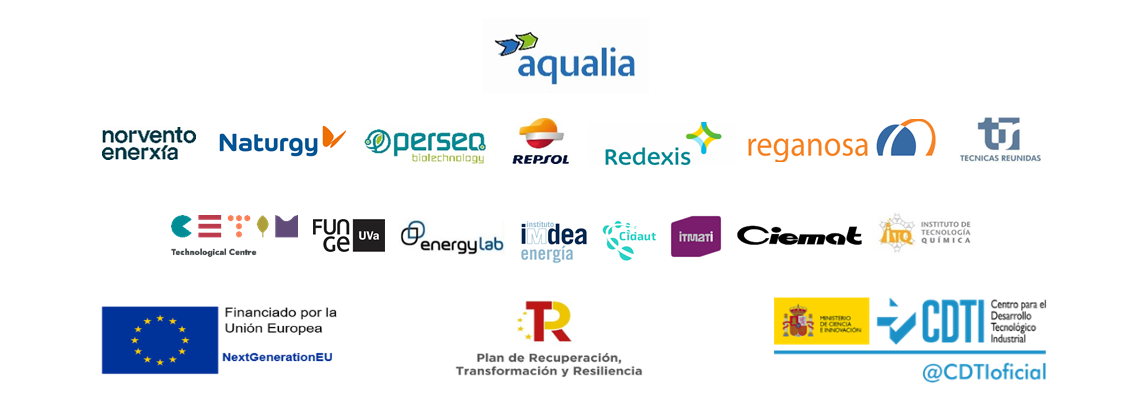
Naturgy is taking part in the ZEPPELIN project, the overall objective of which is to research a flexible set of green hydrogen production and storage technologies based on harnessing waste and by-products in an effort to significantly improve the production costs and efficiency of this energy vector.
This project addresses the various technological challenges involved in reforming biogas and bioethanol, dark fermentation (DF), microbial electrolysis (ME), gasification and the storage of H2, creating new ways to obtain green hydrogen besides electrolysis using renewable energies and integrated into a decarbonised energy model under the principles of a circular economy and digitalisation within a water stress scenario aggravated by climate change phenomena.
The project is scheduled to last for 38 months (from 1 November 2021 to 31 December 2024).
ZEPPELIN is being carried out by a consortium consisting of Naturgy and seven other companies: Aqualia (as the consortium leader), Norvento Enerxía, Perseo Biotechnology, Repsol, Redexis, Reganosa and Técnicas Reunidas.
Also collaborating are nine research organisations (CETIM, CIEMAT, EnergyLab, CIDAUT, Instituto de Tecnología Química (ITQ-UPV and ITQ-CSIC), the Fundación (FUNGE-UVa), IMDEA-ENERGIA and ITMATI), which possess complementary technological capabilities to support all the long-term research activities proposed by the project.

ZEPPELIN has a total budget of €7,108,584 and a grant of €4,239,725.90. It has been subsidised by the Centre for Industrial and Technological Development (CDTI) under the 2021 call for proposals of the SCIENCE AND INNOVATION MISSIONS Programme (Recovery, Transformation and Resilience Plan) and is being supported by the Ministry of Science and Innovation. The grant given to the project is being funded by the European Union through the Next GenerationEU Fund. This programme funds pre-competitive cooperative research projects led by companies to achieve:
- Relevant research capable of proposing solutions to cross-cutting strategic challenges for Spanish society
- Improvements in the knowledge and technology base on which Spanish companies support themselves to compete
- A boost to public-private cooperation
ZEPPELIN Project Structure
Five complementary research activities
Naturgy will lead the research work of Activity 3. We will be supported by the EnergyLab Technology Centre, with which we have been working for several years on the Renewable Gas Mixed Unit Project at the Bens WWTP in A Coruña. This project has led to a significant knowledge increase and pilot projects have been set in motion that will be harnessed by Zeppelin.
This activity aims to research and optimise production of H2 using catalytic methods. It will research and optimise the biogas dry reforming process, including pretreatment for biogas desulphurisation and, in a second stage, the recovery of syngas to maximise H2 production. In addition, it will research and optimise the process for obtaining and reforming bioethanol, as well as improving the process by means of the electrification of catalytic reactors.
This activity aims to research and optimise production of H2 using microbiological methods. More specifically, it will research and optimise the dark fermentation and microbial electrolysis processes as well as the upgrading of bioH2.
This activity is focused on research and optimisation of H2 production using thermochemical methods. Research is being carried out to optimise the gasification process using waste as well as H2 and syngas separation and purification processes.
In addition, each one of the above activities proposes research in new algorithms for modelling each one of the processes studied.
This activity is focused on the integration and optimisation of alternative processes for obtaining hydrogen. The integration of new production and storage technologies is being studied, including proof of concept for the technologies researched as part of ZEPPELIN. An analysis of the potential for integrating the technologies is also proposed, as well as the design of a digital optimisation tool.